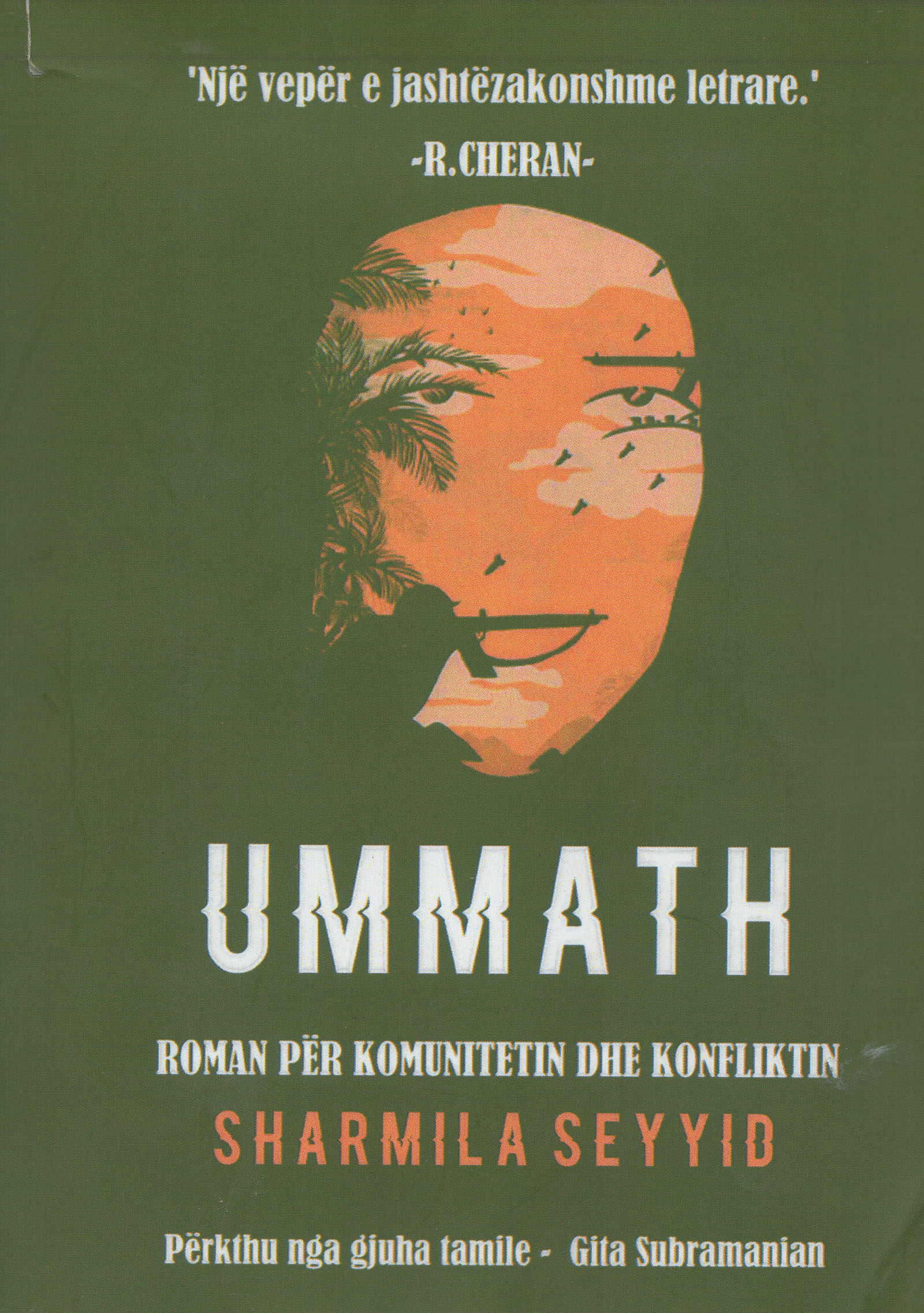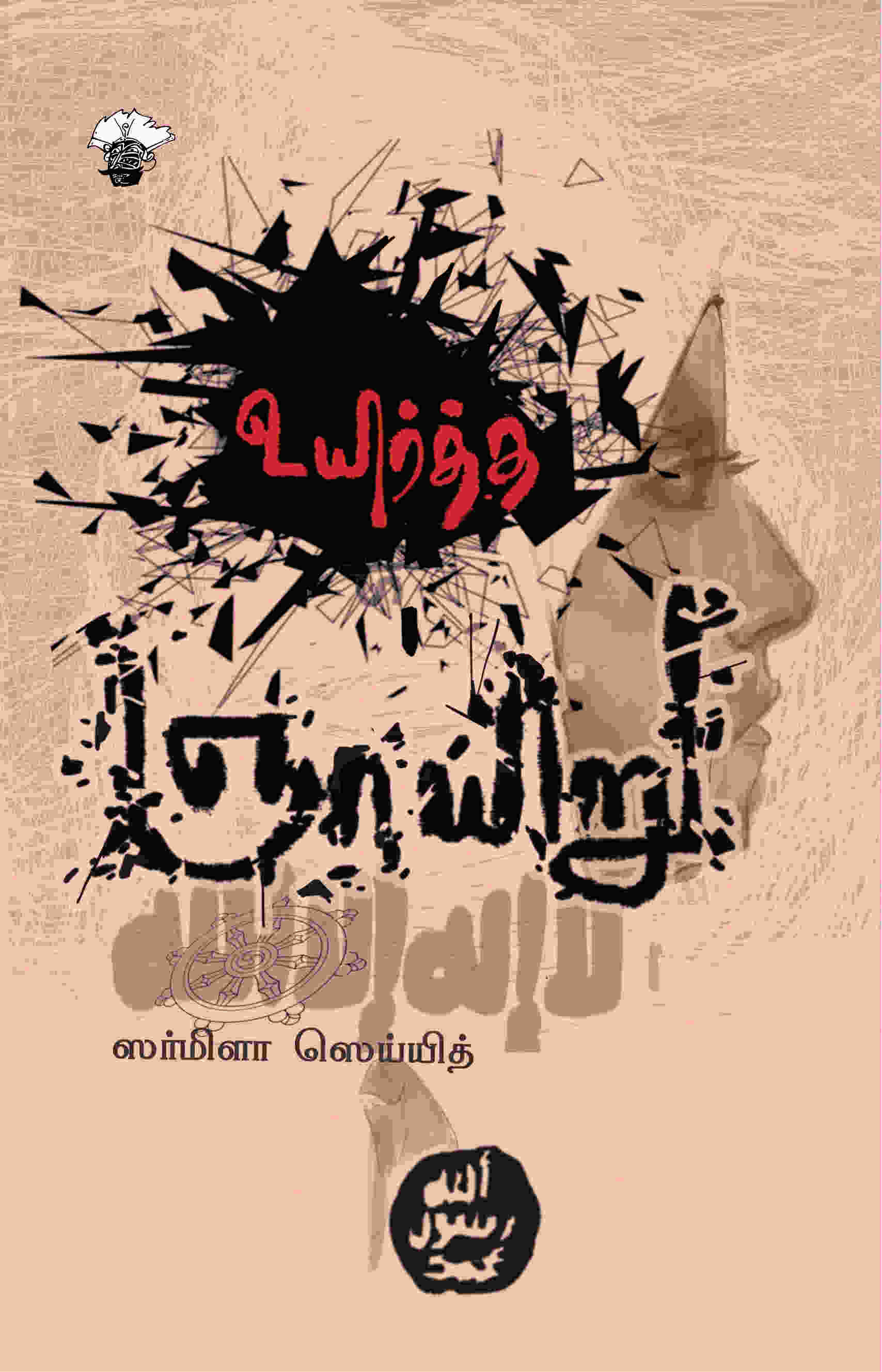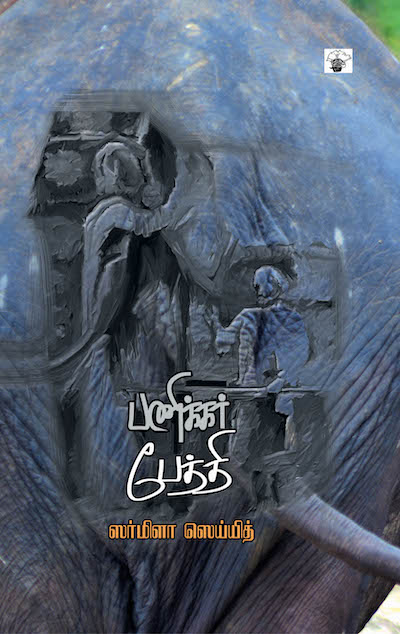
SHARMILA SEYYID (1982)
Born in 1982, Sharmila Seyyid is a writer, social activist, and fearless social critic. Hailing from Eravur, in Sri Lanka’s Eastern Province, she has worked as a journalist and a writer since 2001. As an activist, Sharmila interacts closely with minority Tamil Speaking women in the aftermath of Sri Lankan Civil War (1983-2009).
Sharmila’s writing interrogates themes related to women’s rights, children’s rights, humanitarian conflicts, youth activism, gender, and sexuality, and more. Her dedication to advancing gender equality has been met with several challenges: she has become a target of the very persecution she seeks to fight, facing vitriolic criticism, harassment, and death threats because of her literary work and activism. In December 2012, as a result of the massive backlash, Sharmila made the difficult decision to go into self-exile, travelling to India with her son, who was two years old at the time. While in exile, she completed her higher education and published her first novel, Ummath, in 2014.
After four years in India, Sharmila returned to Sri Lanka in 2016 to continue her work as a human rights advocate and writer. Upon her return, she established Mantra Life, an organization that seeks to lessen the gender gap in Sri Lanka’s economic, political, and social spheres by helping women become financially independent.
Unfortunately, Sharmila continued to feel threatened in her home country. In the wake of the Easter Sunday bombings by the National Thowheeth Jama’ath (NDJ), - the most violent incident in Sri Lanka since the civil war - the authorities contacted Sharmila to notify her that she had been named as one of the NDJ’s targets, possibly due to her outspoken statements on gender equality and human rights. Fearing for her family’s safety, Sharmila went into exile again in 2019, separated from her sons. She spent two months at the Art Omi residency in New York before traveling to India, Thailand, and Turkey.
In 2014, Sharmila Seyyid received the “Inspirational Women” Award from Women in Management in Sri Lanka. Her literary works, including the acclaimed “Ummath,” which was named the ‘Best Novel of the Year’ by the Tamil Progressive Writers and Artists Association in 2014 and published in English by HarperCollins, has earned her widespread recognition. She’s authored a diverse range of nine books, spanning fiction, non-fiction, poetry, stories, and articles. Sharmila is also an IIE-Artist Protection Fund Fellow, having been in residence at UNO’s Leonard and Shirley Goldstein Center for Human Rights and UNO’s Sam and Frances Fried Holocaust and Genocide Academy.
UMMATH(Novel)
Number of pages: 352
Spanning the three decades of the deadly Sri Lankan civil war, Ummath highlights the plight of women across communal and ethnic divides.
Through the lives of three women, Thawakkul, Yoga and Theivanai – one a social activist, the other a Tamil Tiger forced into joining the movement as a child, and the third a disillusioned fighter for the Eelam – the novel lays bare the complex equations that ruled life in Sri Lankan society during and in the aftermath of the civil war.
In Ummath, Sharmila Seyyid – once forced to live in exile for her outspoken, liberal views – interrogates Islamist fundamentalism, Tamil nationalism and Sri Lankan majoritarian chauvinism with her characteristic courage, honesty and sensitivity.


EASTER SUNDAY (Nonfiction)
(Uyirtha Gnayiru)
Number of Words: 65,294
On that fateful Easter Sunday in 2019, Sri Lanka was thrust into darkness as a series of meticulously coordinated bomb blasts rocked its capital, Colombo, and its suburbs. The assailants targeted three churches and three luxury hotels, timing their explosions to maximize the devastation. Two hundred and sixty-nine innocent live were cruelly taken, and over five hundred others were left wounded. In mere moments, thisbeautiful vibrant island and its people were forever altered.
The long-term consequences of this heinous act of violence are still unraveling. Sri Lankan politics, historically sensitive to the deep-seated divisions of race, ethnicity, and religion, took an alarming majoritarian turn. The Islamic State (I.S.) terrorists, who boasted responsibility for the bombings, sowed not only anger against themselves and their supporters but also alienated the entire Muslim community in Sri Lanka. In the eyes of the Sinhalese, every Muslim individual is considered guilty and blamed for the bombings.
It is against this highly charged, toxic atmosphere that the protagonist of this autobiographical work emerges - Sharmila Seyyid, an activist with many years of experience in rehabilitating women in the aftermath of the civil war. However, she now finds herself grappling to rescue her life and the purpose of her work, both of which have been unceremoniously upended. Her mission was to empower women from all backgrounds through her organization, Mantra. However, her life’s savings invested in this dream now seem futile. The land earmarked for Mantra is situated in an exclusively Sinhala area, where both Christian and Buddhist Sinhalese vehemently oppose an organization led by a Muslim woman, despite its inclusive purpose. Sharmila’s determination to salvage Mantra becomes the driving force of her existence.
As a single mother, supporting her two sons, one a perceptive ten-year-old and the other a toddler, was challenging enough. Now, she must also provide courage to her mother, who lives in constant fear of retaliation from their Sinhala neighbors. Life presents a daily puzzle, some with solutions, others without.
Sharmila’s own Muslim community shuns her for her activism, leading her to question the extent of I.S. infiltration in Sri Lanka. This prompts her to delve into the lives of women under I.S. rule and the broader impact of the terrorist organization, incorporating her findings into this narrative. Besieged by opposition from both Muslims and Tamils siding with the majoritarian view, Sharmila’s life feels constricted from all angles. Their Sinhalese neighbors begin to assert dominance over Sharmila and her family, and she, usually filled with positivity and action, finds herself at a crossroads.
Ultimately, it is her ten-year-old son, Badhri, who forces her to reconsider and takeaction. His keen awareness of his mother’s danger causes him to become obsessed with fear, imagining lurking assassins at every corner. Badhri’s vulnerability makes it clear that he is Sharmila’s foremost priority, reigniting her spirit of resilience in the face of adversity.
THE ELEPHANT GRANDDAUGHTER
(Panikkar Pethi)
Number of pages: 110
‘The Elephant Tamer’s Granddaughter’ (Panikkar Pethi) is set in the hometown of the writer - Eravur in Sri Lanka - and unfolds through the life of Zaharwan, the eponymous Panikkar Pethi. Sharmila portrays a range of characters and their complex spectrum of emotions in just about a hundred pages in the Tamil original.
Offering tantalizing glimpses into her family history, grandfather’s fame, childhood, marriage, struggles as a single mother and her old age, this novel deftly weaves the story of its protagonist with the experience of Sri Lankan Muslim women. It illustrates how the community is tied to the country’s history and culture - something that the state and Sinhala majority have tried to erase.
Zaharwan, an orthodox Muslim Tamil merchant family in Sri Lanka, shows exemplary courage and willpower when she confronts male chauvinism and the suppression of women overtly as well as through different, insidious social practices like dowry.


